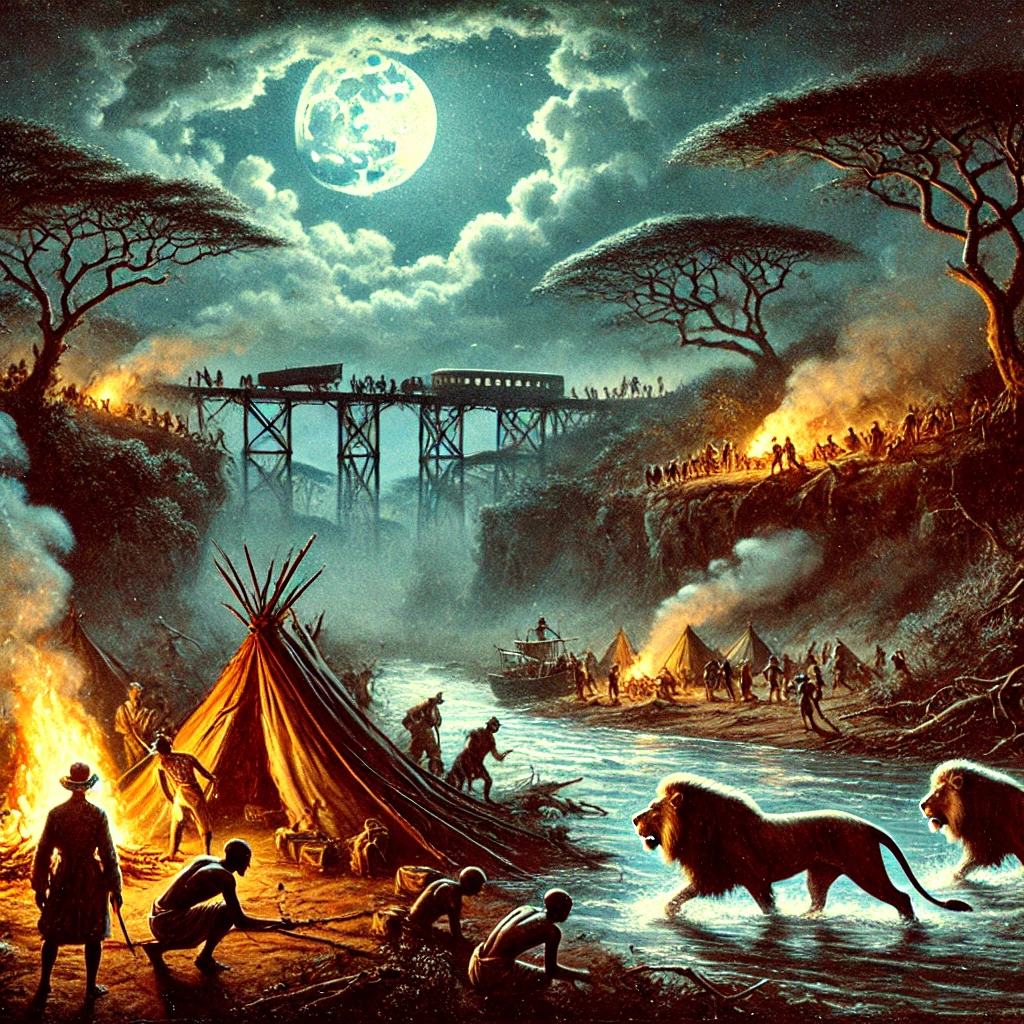The Man-Eaters of Tsavo
The ferocity of nature and colonial oppression

The Man-Eating Lions of Tsavo: A Terror That Shattered the Construction of the Uganda Railway in 1898. Amidst deadly attacks and inhumane working conditions, Indian workers led by British officers faced a battle against nature and colonial oppression. An episode that remains symbolic of the human cost of colonialism - AI-generated image
In 1898, during the construction of the Uganda Railway along the Tsavo River in Kenya, one of the most unsettling episodes in British colonial history occurred: the attack of the "man-eating lions." The Indian workers, recruited for the project, were already enduring harsh conditions—disease, hunger, and exploitation—but the situation worsened when they began mysteriously disappearing at night.
It was discovered that two male lions, maneless, were responsible for these disappearances, preying on the men directly from the camps. Initially confused, colonial authorities suspected a mutiny, but they soon had to face the reality: the lions had turned the construction site into a literal hunting ground. Estimates suggest the two felines killed between 35 and 135 workers, depending on the source.
Terror among the workers grew so intense that many deserted, almost completely halting the construction of the bridge over the Tsavo River. John Henry Patterson, the chief engineer, tried to protect the workers by building fences and keeping fires lit at night, but the lions continued to defy these defenses. Only after months of relentless hunting did Patterson manage to kill both lions, ending the attacks.
This episode was not just a human tragedy, but it also became a symbol of the hardships and dangers faced by the Indian workers, forced to live in extreme conditions. The Tsavo lions, now displayed at the Field Museum in Chicago, still embody the horror of those days. The railway, dubbed the "Lunatic Express," became a controversial project, criticized for its enormous human cost and the apparent lack of clear objectives, raising questions even in Britain about the true aims of colonialism in Africa.
- Aiyar, Sana, Indians in Kenya: the politics of diaspora, Harvard University Press, 2015.
- Tsavo Lions", Field Museum of Natural History, 10 February 2018.
- J.H. Patterson, The man eaters of Tsavo, Macmillan and Co., 1907.
- Robert G. Gregory, India, and East Africa: A History of Race Relations Within the British Empire, 1890-1939, Clarendon Press, University of Michigan, 1971
Toniatti Francesco - Professor of History and Oriental Studies, Master of Arts in International Relations
2025-08-10
Salvatore Ciccarello
